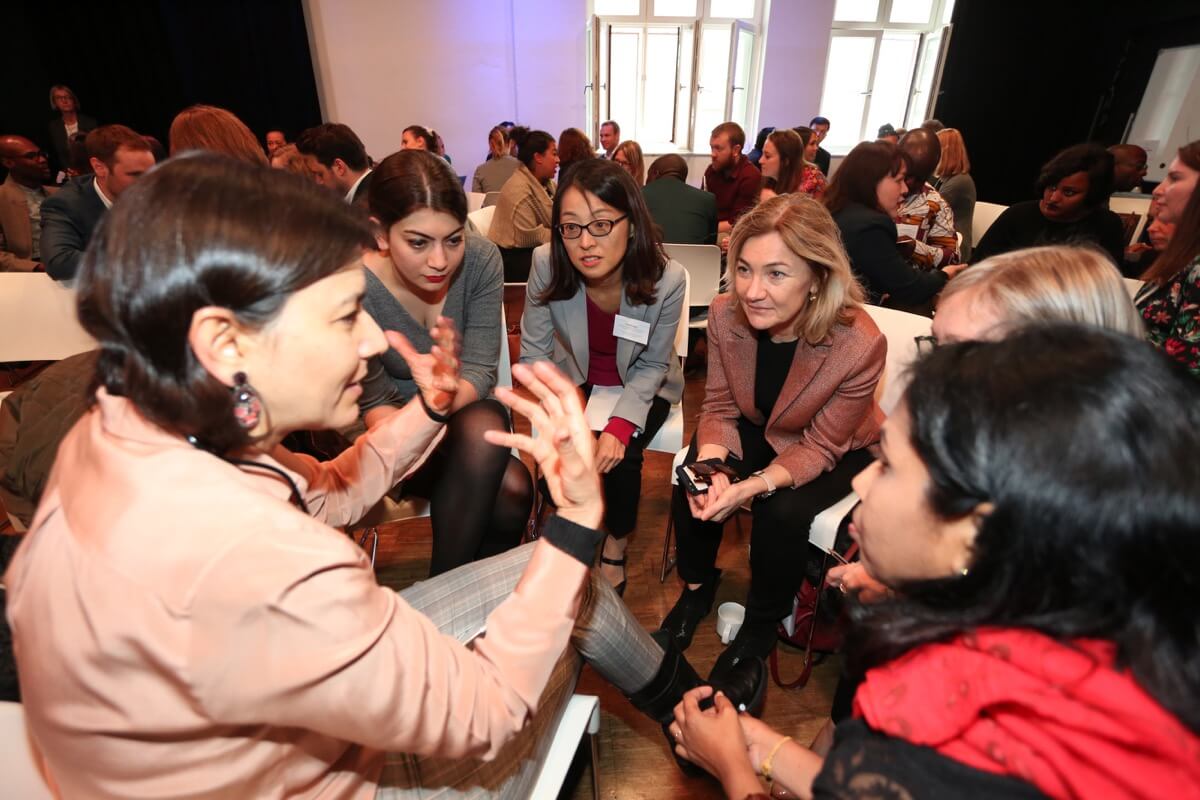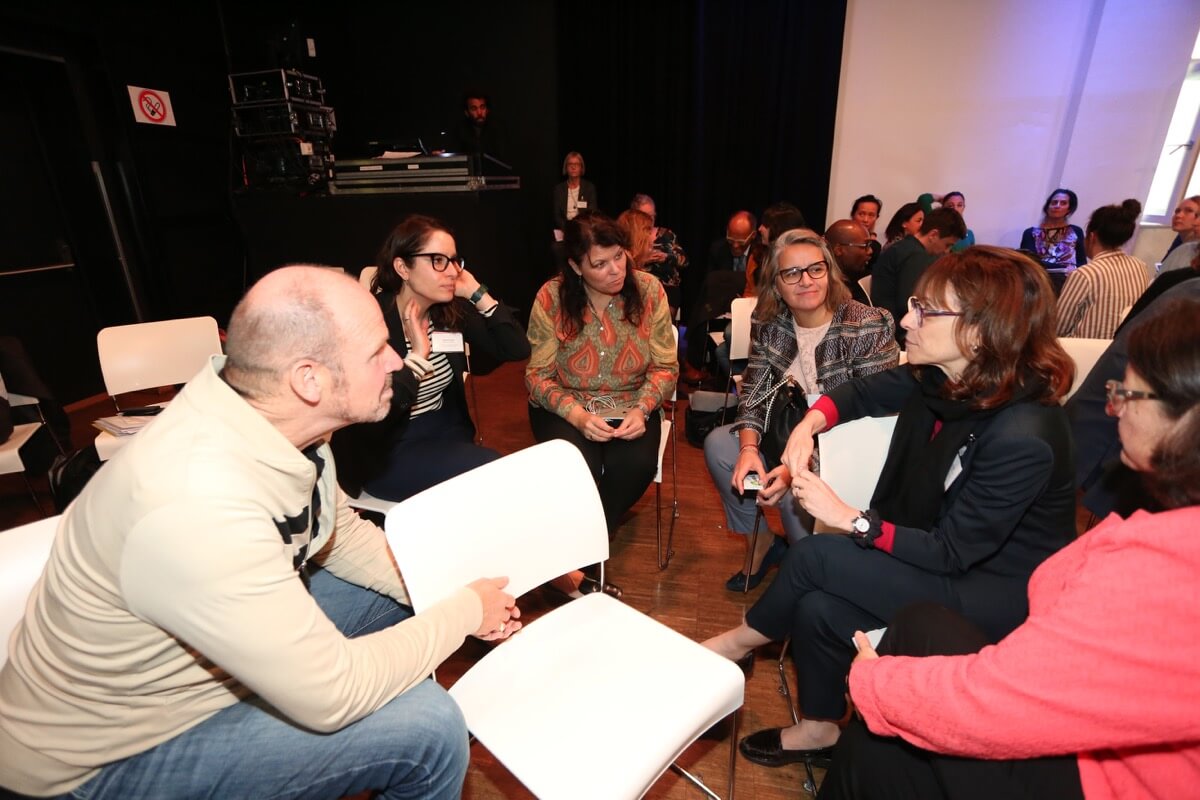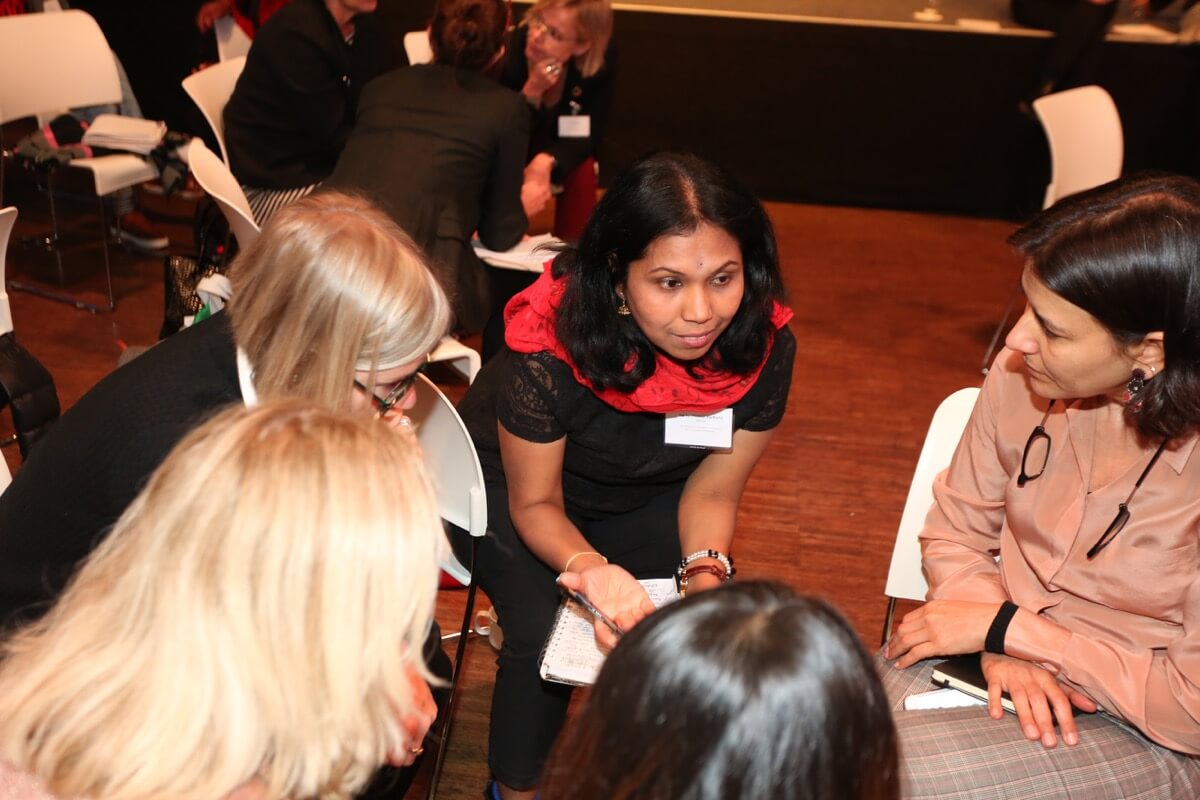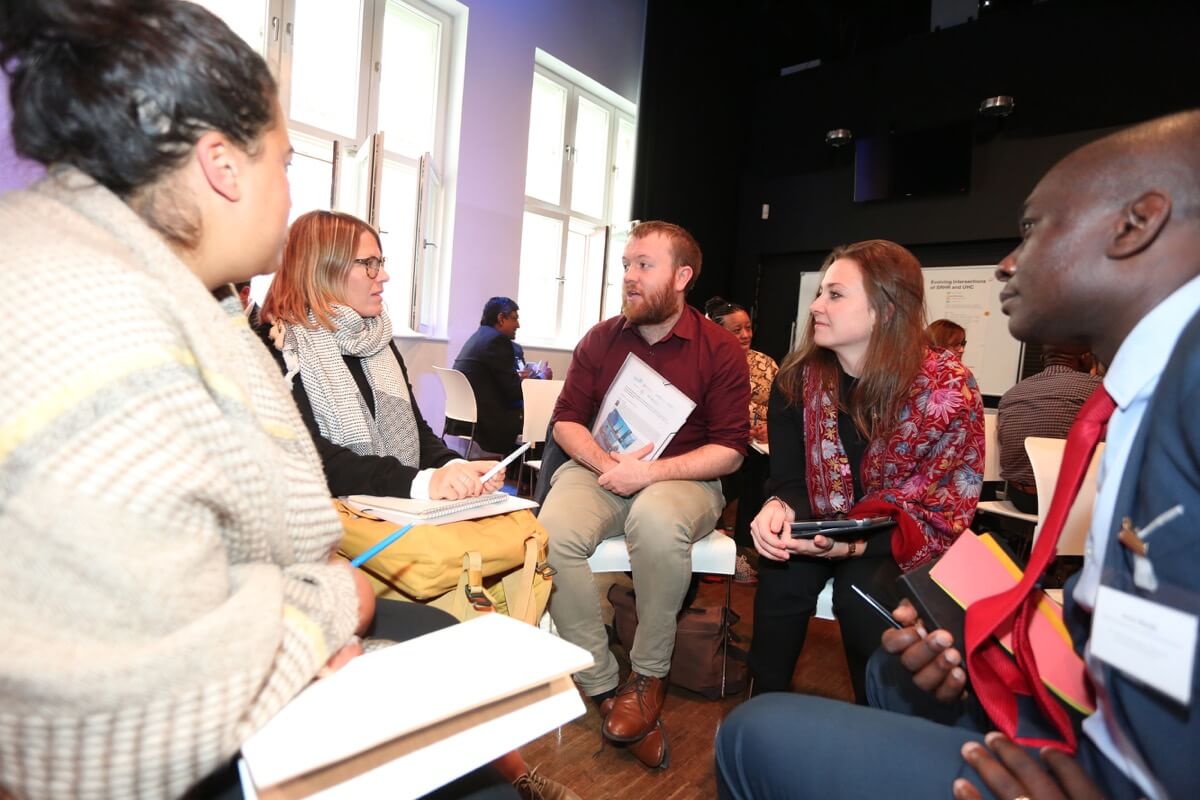Recap and Perspectives
Recap and perspectives
After two days of lively and passionate discussions, speeches and workshops, the more than one hundred delegates who had travelled to Berlin for the 17th International Dialogue on Population and Sustainable Development took stock.
During a short panel discussion, Anneka Knutsson, UNFPA’s Chief of the Sexual and Reproductive Health (SRH) Branch, Sai Jyothirmai Racherla, Programme Director at The Asian-Pacific Resource & Research Centre for Women (ARROW) in Malaysia and Mette Gonggrijp, Ambassador for Women’s Rights and Gender Equality at the Dutch Ministry of Foreign Affairs, discussed countries’ progress in advancing Sexual and Reproductive Health (SRH) services as part of their national basic benefit packages, as well as opportunities and challenges to advance the Sexual and Reproductive Health and Rights (SRHR) and the Universal Health Coverage (UHC) agenda through the upcoming Nairobi Summit and other relevant international negotiations.
Subsequently, delegates gathered in small discussion groups of four to five persons to exchanges their ideas about which issues raised during the two-day dialogue seemed to be of particular importance and what lessons they would take home. Furthermore, the discussion groups looked at ways of advancing the implementation of SRHR and UHC.
Participants exchange ideas and impressions in small discussion group
Finally, moderators invited delegates to a fishbowl discussion: participants were invited to take a seat in any of three empty chairs in the middle of the room, where they could ask questions or share their views with the audience. They then moved back to the audience after making their point, to allow others to join the open fishbowl discussion.
Amongst others, delegated addressed the following issues:
Significant strides
Significant strides have been taken towards achieving UHC. Nevertheless, a lot of work is still needed as universal access for all is still a distant reality. Participants urge for the need to re-establish a rights-based approach as the core of UHC with respective accountability mechanisms. Furthermore, a vital aspect of these services – sexual and reproductive health and rights - is under attack. During the course of the International Dialogue, there appeared to be overwhelming agreement that the movements for UHC and for SRHR are interdependent, one cannot be reached without the other. Delegates also underlined the need for experts from different thematic areas and sectors to cooperate more closely and to unite behind the goal of making health for all a reality.
Keeping SRHR on the agenda
The current pushback on SRHR was described as “unprecedented” by Anneka Knutsson. All speakers agreed, and stressed the importance of fighting back together against attempts to take SRHR off the agenda. Mette Gonggrijp praised the cooperation between “like-minded countries” at the UN High-Level Meeting in New York. By working together, she said, they had ensured that the SDG language on SRH was included in the declaration.
Listening more
Several delegates made the point that women must be asked what they want, rather than simply being provided with health services the state thinks they need. Pamela Martín García, Advocacy Coordinator at FUSA AC in Argentina, said “we must listen to women and create space for them to be heard”.
Youth voices
The importance of youth involvement was also addressed by several delegates, with calls to “involve them in an immediate way” and to “bring them into the decision making space”. Delegates agreed that success would depend on “more vocal voices from young people”.
The power of movements
While discussing the power of movements in SRHR it became evident that especially feminist movements (civil society & grassroot actors) highly contribute to forwarding the discussion at the political level. Evidence shows that even in severely resource constrained settings, a strong movement for SRHR can translate into the respective political emphasis. In comparison, the discussions about UHC have so far been predominantly technical, broad and less pointed, and participants scrutinised if (and how) the power and energy of movements can and should be utilized to further UHC.
Bringing men into the movement
There was overwhelming agreement on the importance of involving men in the SRHR conversation. Lebogang Lebese, representative of the South African Ministry of Health commented, “we can only win the battle if we bring men into the movement” and “until men know they need to respect women, we won’t win the battle”. Anders Nordström, Sweden’s Ambassador for Global Health, argued for “positive inclusion”, asking men “what’s in it for them?”.
Scaling up
Looking ahead, UNFPA’s Anneka Knutsson reminded delegates that “the cost of inaction is more than the cost of action”. “We need to go to scale” Knutsson stated, “we need to move on from pilots and send the message that we need large interventions”. Sai Jyothirmai Racherla from ARROW also focused on scaling up. “We need to expand the focus and conversation,” she said, “on issues such as high levels of out-of-pocket expenditure, the range of services available, and reaching the vulnerable and marginalized“.
Other issues covered in the discussion included the role of civil society to ensure that no one is left behind in national health reforms. Delegated also made the point that inequalities are driving many of the challenges to move in the direction of UHC. Furthermore, it was expressed that success stories, such as major improvements in maternal health services at national level, must be highlighted and used as learning opportunities for other countries.



